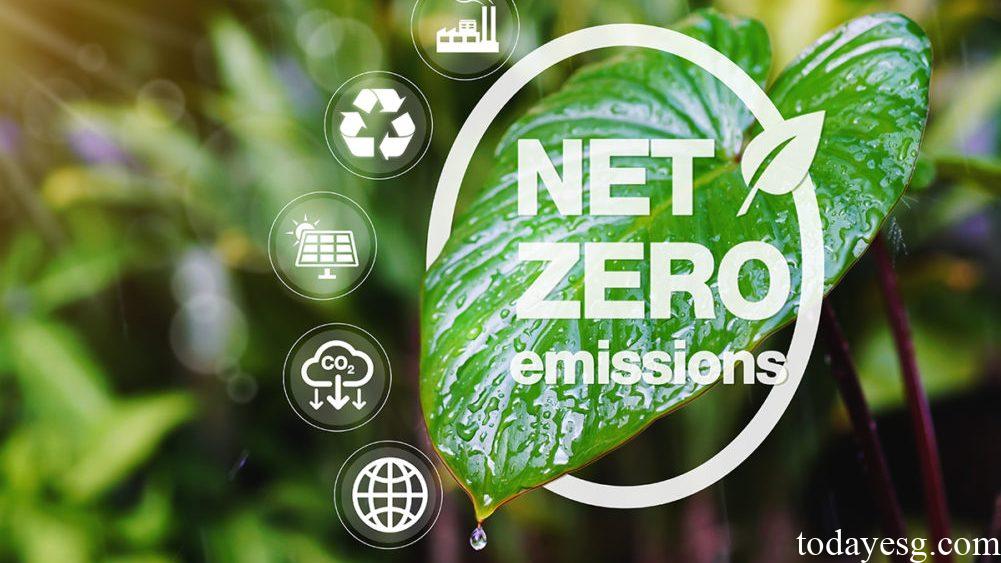Glasgow Financial Alliance for Net Zero Report
The Glasgow Financial Alliance for Net Zero (GFANZ) has released its 2023 annual progress report, which aims to summarize GFANZ’s achievements in net zero transition.
The Glasgow Financial Alliance for Net Zero was established in April 2021. Its purpose is to encourage the financial industry to provide the necessary financing for companies’ net zero transition, thereby driving economic growth, increasing development opportunities, and improving human living standards. Currently, GFANZ has 675 members, distributed in 50 countries around the world.
Related Post: Net Zero Asset Owner Alliance Releases Progress Report
Work of the Glasgow Financial Alliance for Net Zero
GFANZ believes that the impact of climate change on the economy is intensifying, and if climate action is not taken, the world is expected to lose 10% of GDP in 2050. Although the net-zero transition is underway at a rapid pace, there is still a $7 trillion annual gap based on current investment levels. This requires the global financial sector to create a financing environment that supports net zero.
GFANZ sets out several net zero related priorities which have been completed this year, such as:
- Mainstreaming transition plans: Many members of GFANZ have voluntarily developed and disclosed transition plans, impacting their jurisdictions. The UK Transition Plan Taskforce (TPT) has published guidance on using the transition framework provided by GFANZ. The implementation of the transition plan requires high-quality data support, and the ISSB also requires entities to disclose high-quality, comparable climate data in the IFRS S2 climate disclosure standards.
- Supporting the energy transition: GFANZ has launched the Industrial Transition Accelerator (ITA) to promote decarbonization of high-emission industries. GFANZ also provides guidance on financing coal power plants in the Asia-Pacific region and identifies emerging technology approaches for measuring potential decarbonization contributions.
- Financing for emerging market and developing economies: GFANZ has partnered with multilateral financial institutions (e.g. World Bank, International Monetary Fund) to provide net-zero financing support to emerging market and developing economies.
- Advancing public policy: In addition to its financial actions, GFANZ is working with other stakeholders to advocate for a just and orderly transition to net zero to reduce the financial impacts of climate change.
- Expanding members: GFANZ has launched its third regional network in Latin America and established a Japan office and Hong Kong office to assist local net zero activities. GFANZ will also include the Venture Climate Alliance (VCA) to expand the financial ecosystem.

Development of Glasgow Financial Alliance for Net Zero
There are eight net-zero related alliances under GFANZ. These net zero-related alliances attract different categories of financial institutions and play different roles in the net zero transition. The development of these alliances is as follows:
- The Net Zero Asset Managers (NAZM) was established in December 2020 and currently includes 315 signatories with a cumulative asset management scale of more than US$57 trillion. 38% of portfolios in 2023 have established net zero plans, with 51% adopting the net zero framework provided by GFANZ.
- The Net Zero Asset Owner Alliance (NZAOA) has 86 signatories, with assets under management reaching US$9.5 trillion. In 2023, NZAOA signatories disclosed their thermal coal transition plans for the first time, 82% of which met GFANZ requirements. Signatories’ carbon dioxide emissions dropped from 221 million tons in 2021 to 213 million tons.
- The Net Zero Banking Alliance (NZBA) has 136 signatories, with assets under management reaching US$74.9 trillion, accounting for 40% of the total assets of global banks. The net-zero financing directions of signatories are mainly in industries such as power (76%), energy (57%), real estate (45%), and transportation (40%).
- The Net Zero Financial Services Providers Alliance (NZFSPA) has 26 signatories, located in 12 jurisdictions. These signatories include audit firms, exchanges, index companies, research and data providers, and others. They both have voluntary net zero frameworks in place.
- The Net Zero Insurance Alliance (NZIA) has 11 signatories with premium income of $210 billion. The signatories released documents such as the Net Zero Insurance White Paper and the Partnership for Carbon Accounting Financials (PCAF) Insurance Emissions Standard.
- The Paris Aligned Asset Owners (PAAO) was established in May 2019 and consists of 56 asset owners with a management scale of US$3.3 trillion. PAAO adheres to the Net Zero Investment Framework, plans to achieve net zero greenhouse gas emissions by 2050, and provides guidance on net zero investment for the private equity industry and the infrastructure industry.
- The Net Zero Investment Consultants Initiative (NZICI) has 11 signatories, involving US$1.5 billion in financial assets. These signatories provide strategic advice to asset owners.
- The Venture Climate Alliance (VCA) was established in 2023 with 81 signatories and an asset management scale of US$179 billion. These signatories want to invest in startups and help them manage climate risks in the early stages of their growth and ultimately achieve net zero emissions.
Future for Glasgow Financial Alliance for Net Zero
In 2024, GFANZ will continue to work in the following areas:
- Strengthen transition financing: GFANZ will create a net-zero transition index that comprehensively considers nature, biodiversity, climate change and other aspects to measure the decarbonization contribution of the financial industry and strengthen transition financing.
- Support climate finance for emerging markets and developing economies: GFANZ will expand support to emerging market countries and mobilize private capital to invest in climate change and establish mature carbon markets for developing economies.
- Promote global economic transition: GFANZ will encourage financial institutions to focus on underrepresented regions and promote global decarbonization transition through regional networks.
- Improve information transparency: GFANZ will launch a net-zero data utility to ensure financial institutions have access to accurate and comprehensive data.
Reference:
GFANZ 2023 Progress Report
ESG Advertisements Contact:todayesg@gmail.com








